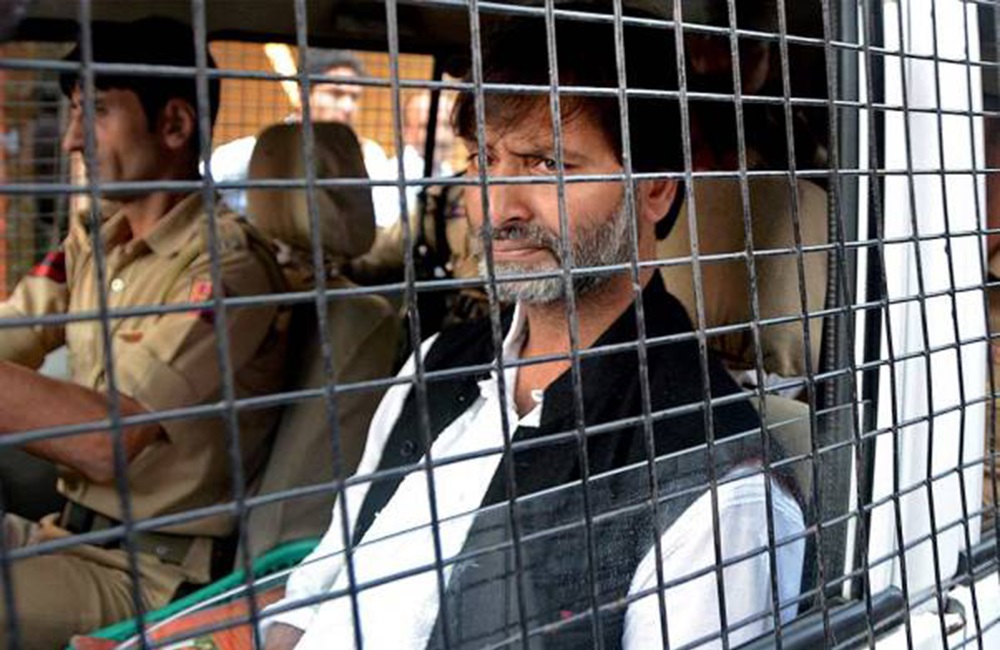India & World UpdatesHappeningsBreaking News
Yasin Malik sentenced to life imprisonment on charges of terror funding
'Wanted death penalty for him,' said wife of IAF officer killed in terror attack by Yasin Malik

May 25: On Wednesday, a special NIA court sentenced Kashmiri separatist leader Yasin Malik to life imprisonment in a terror funding case. Special Judge Praveen Singh at Delhi’s Patiala House Court also imposed a fine of over Rs 10 lakh on Malik, who had earlier pleaded guilty to all the charges, including those under the stringent Unlawful Activities Prevention Act’ (UAPA).
 Different prison sentences and fines have been awarded for different cases. Yasin Malik now has the option to appeal the sentencing in the High Court. During the hearing, Malik had argued why would the Indian government led by Atal Bihari Vajpayee give him a passport and allow him to travel and speak around the world if he was a criminal. Malik also said that he has followed the principles of Mahatma Gandhi ever since he gave up arms in 1994. “I have been doing non-violent politics in Kashmir ever since,” he said.
Different prison sentences and fines have been awarded for different cases. Yasin Malik now has the option to appeal the sentencing in the High Court. During the hearing, Malik had argued why would the Indian government led by Atal Bihari Vajpayee give him a passport and allow him to travel and speak around the world if he was a criminal. Malik also said that he has followed the principles of Mahatma Gandhi ever since he gave up arms in 1994. “I have been doing non-violent politics in Kashmir ever since,” he said.
 Nirmal Khanna, wife of IAF officer Ravi Khanna, a victim of a terror attack carried out by Kashmir separatist leader Yasin Malik on Wednesday said that she is not satisfied with the punishment awarded to him. Khanna said she wanted the death penalty for Malik in her case.
Nirmal Khanna, wife of IAF officer Ravi Khanna, a victim of a terror attack carried out by Kashmir separatist leader Yasin Malik on Wednesday said that she is not satisfied with the punishment awarded to him. Khanna said she wanted the death penalty for Malik in her case.
#WATCH | I honour whatever punishment the judges have awarded. They know better what punishment should be given in such a case… I'm 100% sure justice will be given to me…: Nirmal Khanna, wife of IAF officer Ravi Khanna, a victim of a terror attack carried out by Yasin Malik pic.twitter.com/hgcgRx1PnS
— ANI (@ANI) May 25, 2022




